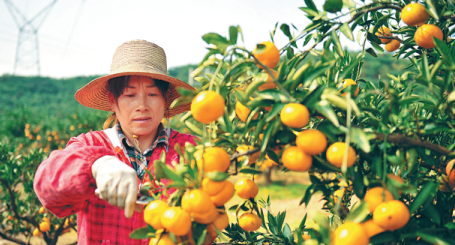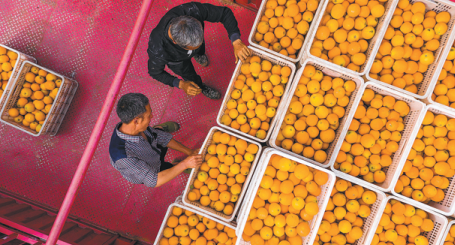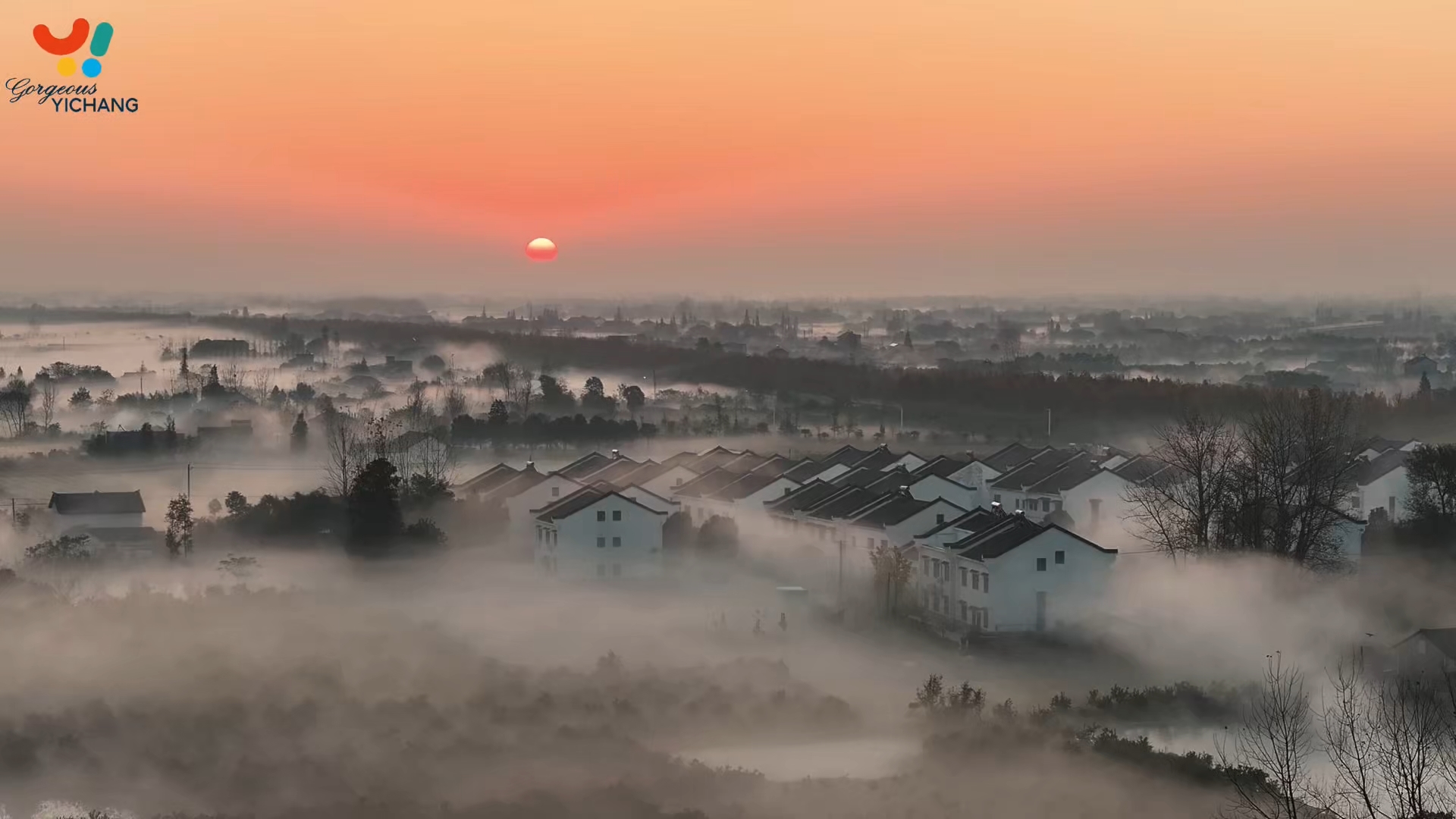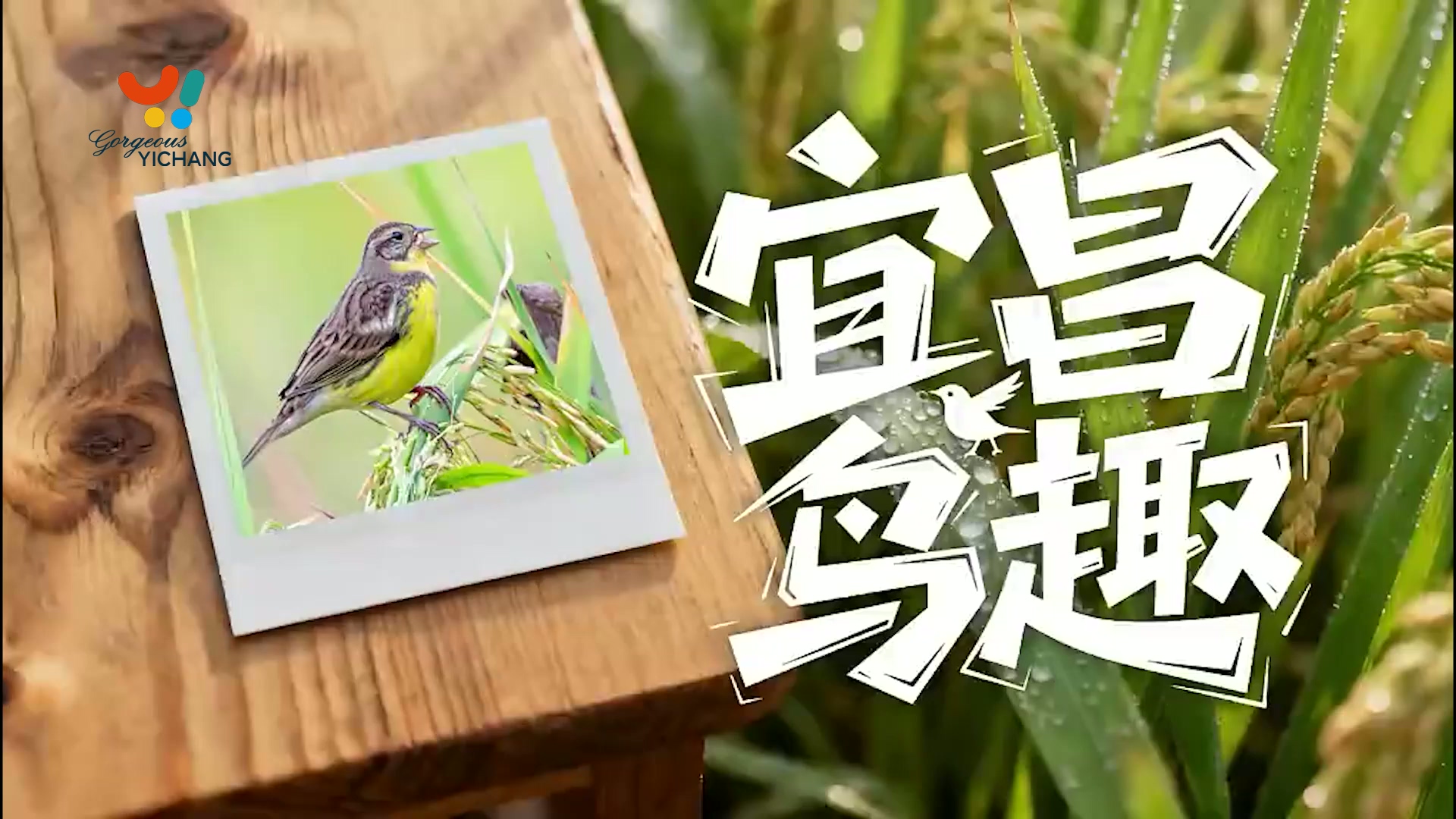Oranges grown in Yichang create harvest of wealth

A farmer harvests oranges at an orchard in Yichang, Hubei province. ZHANG GUORONG/FOR CHINA DAILY
This month, fresh oranges from Yichang, Hubei province, are on their way to Bangkok, ready to tease taste buds with their juicy sweetness.
The shipment, which weighs 58 metric tons, left Wuhan's Yangluo Port late last month and arrived in Shanghai via the Yangtze River three days later, where it was loaded onto a ship bound for Bangkok. The journey took about 20 days, and the oranges had been stored in refrigerated containers to keep them fresh.
"Customs have been very supportive in terms of planting as well as disease and pest control. They have also helped us expand our international markets," Zhang Yanghong, general manager of the Yichang Yanghong Farmer Trading, exporter of the oranges, told Jimu News, a media outlet in Hubei.

Farmers in Xiaba village in Zigui county, Hubei, load cases of oranges onto a truck in April. NIE SHUANG/FOR CHINA DAILY
Yichang is one of the largest orange-producing areas in China and one of the best suited to cultivate the fruit. Capable of growing almost every variety in the world, its 140,000 hectares of orchards produce 4 million tons of oranges every year.
By the end of last month, 11,000 tons of fresh oranges had been exported from Yichang to about 20 countries and regions, including Russia, Thailand, Myanmar, Malaysia and Canada, 2.4 times more than those exported during the same period last year. In the last two years, Southeast Asia has become Yichang's biggest overseas market. The oranges are currently selling for 6,700 yuan ($960) per ton for export, according to data from local authorities, and about 50,000 tons of canned oranges, priced at between 9,000 and 9,500 yuan per ton, have also been exported, mainly to the United States and the Middle East.
In addition to shipping by sea, oranges are also being exported by rail on China-Europe freight trains.
During the peak period of production and sales, Yichang Customs offers quality management, COVID-19 supervision, sourcing, transportation and processing guidance to orchards and packing companies. A green channel has also been opened to make customs clearance quick and convenient, so that the freshness of the oranges is not affected. The fruit is the principal source of income for many farmers and is key to promoting rural vitalization in Yichang.
At the Yichang Yilinghong Ecological Agriculture Development, workers keep busy packing the fruit. Wang Enzhen, chairwoman of the company, said that although this year's drought had reduced harvests by 30 percent, incomes have not decreased because prices have risen by 50 percent.
The company's oranges are mainly exported to Russia, Vietnam and Thailand, and sales have already surpassed 1 billion yuan, she added.
Lin Siju, a farmer from Chunxin village, harvested 90 tons of oranges this year and is happy that prices have risen. Trader Shi Dejun, who has been purchasing Yichang oranges for 11 years, said they are much sought after by customers in Qiqihar, Heilongjiang province, for their sweetness and quality.






